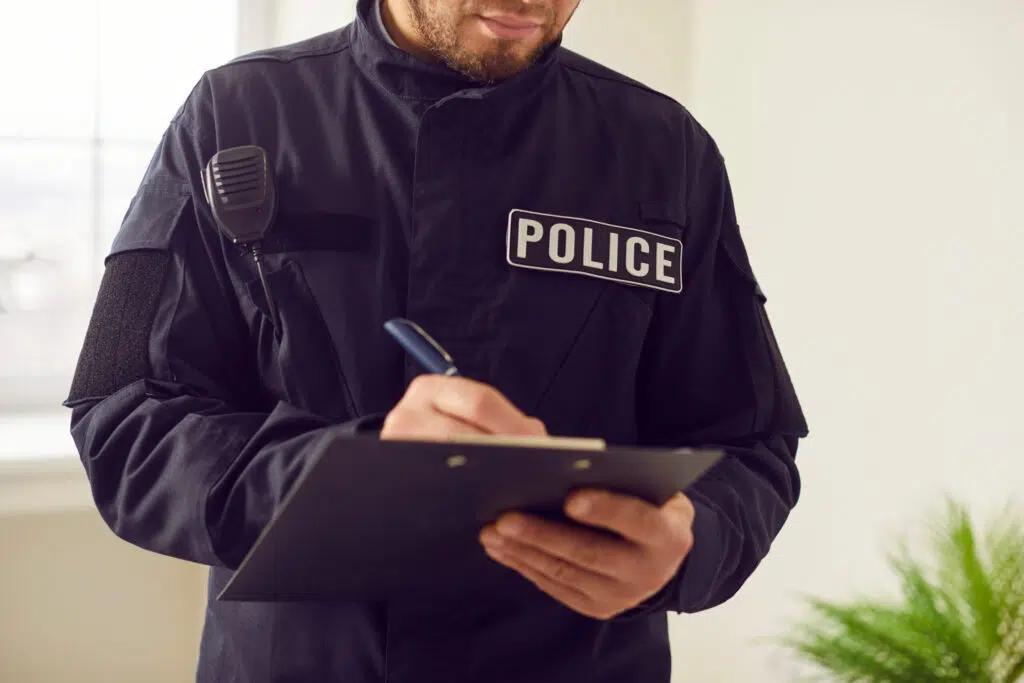Accidents are unpredictable and can happen in the blink of an eye. When they do, knowing how to respond is key, especially when it concerns legal obligations. In Florida, filing a police report after an auto accident is not just a formality. It’s a necessity. Understanding the timelines and legal requirements for filing this report is essential to secure compliance with state laws and to protect your legal rights.
Florida's Auto Accident Reporting Requirements
According to Florida’s traffic laws, you generally have ten days to file a police report if an officer did not initially report the accident on the scene. This rule applies to all accidents, whether minor or severe.
However, the report should be filed immediately if the accident results in injury, death, or significant property damage (estimated to be over $500). Understanding these timelines can help you avoid legal pitfalls and make certain your insurance claims are processed smoothly.
Understanding Florida's Auto Accident Reporting Laws
Florida law mandates that all drivers involved in an auto accident must report the incident to the police if it meets specific criteria. These criteria include injuries, fatalities, or property damage exceeding $500. Failure to report such accidents can result in fines and possible license suspension.
Reporting an accident promptly also helps law enforcement officials document the event accurately, which can be significant for any subsequent legal or insurance claims. Awareness of these procedures can ensure compliance with state regulations and help avoid unnecessary complications during the insurance claim process.
The 10 Day Reporting Requirement
In scenarios where a police officer did not come to the accident scene, Florida law requires you to file a written report within ten days. This written report, known as the “Driver Report of Traffic Crash,” can be submitted at any local police station or sheriff’s office.
Failing to comply with this 10 day reporting requirement can have several consequences, including difficulties with insurance claims and potential fines. It’s always best to complete this step as soon as possible to avoid negative repercussions.
Why Filing a Police Report Quickly Is Crucial
Prompt reporting of an auto accident is vital for several reasons. First, it guarantees that all details of the accident are documented while the memories of those involved are still fresh. Accurate and timely reports can significantly aid in investigations and insurance claims.
Additionally, quick reporting helps protect your legal rights. If another party in the accident decides to file a claim or lawsuit against you, having a detailed and timely police report can be pivotal evidence in your defense.
Steps To Take Immediately After a Car Accident
Knowing what to do immediately after an auto accident helps you comply with reporting requirements and protect your rights.
1. Ensure Safety
The first step after any accident is to ensure the safety of all parties involved. If possible, move to a safe location away from traffic and check for any injuries. If there are serious injuries, call emergency services immediately.
2. Exchange Information
After ensuring safety, exchange information with the other driver(s) involved. This includes names, contact information, insurance details, and vehicle registration numbers. Having this information readily available can streamline the reporting process and any subsequent insurance claims.
3. Document the Scene
Use your smartphone or camera to take pictures of the accident scene, including vehicle damages, road conditions, and any visible injuries. These photos can serve as valuable evidence when filing a police report and dealing with insurance companies.
4. Gather Witness Information
If there are any witnesses to the accident, gather their names and contact information. Witness statements can provide additional perspectives on what happened and be influential in resolving disputes about the accident.
Witnesses can also corroborate your account of the events, which can be helpful if conflicting reports from other parties are involved. Their testimony can add significant weight to your case if it goes to court.
5. File a Police Report
Finally, file a police report as soon as possible. If an officer did not respond to the scene, call the non-emergency number at your local police station to receive the best advice on how to proceed with filing a report. Depending on your location, filing a report may be done online, over the phone, or require a visit to your local police station or sheriff’s office. Providing accurate and detailed information in your report can help law enforcement conduct a thorough investigation.
Be sure to obtain a copy of the police report for your records. This document will be essential for any insurance claims or legal proceedings arising from the accident.
Common Mistakes To Avoid After a Car Accident
When dealing with the aftermath of an auto accident, making mistakes can quickly complicate your situation.
Delaying Filing a Police Report
One of the most common mistakes after a car accident is delaying filing a police report. Prompt reporting is vital for accurate documentation and legal compliance, and delaying this step can lead to complications in legal and insurance matters.
Providing Inaccurate Information
Another mistake to avoid is providing inaccurate or incomplete information in your report. Confirm all details are correct and comprehensive. Incorrect information can lead to disputes and weaken your case if legal action is necessary.
Ignoring Minor Accidents
Even if the accident seems minor, filing a report is essential. What may appear as minor damage can sometimes lead to more significant issues later. Filing a report sees to it that all parties are protected and that there is an official record of the incident.
A Police Report Is Necessary for Insurance Settlements
Having a detailed police report is crucial for proper legal and insurance settlement. It serves as official documentation of the accident, aiding in investigations and providing evidence to support your claim.
Reporting Requirements for Minor Accidents
Reporting is essential even in cases of minor accidents. While minor fender-benders might seem insignificant, they can sometimes lead to hidden damages or injuries that become apparent later. Reporting guarantees that any potential issues are documented from the start.
Additionally, some insurance companies require a police report for all claims, regardless of the accident’s severity. Filing a report can prevent delays in any future insurance claims.
The Role of Law Enforcement in Car Accidents
Law enforcement officers play an important role in documenting auto accidents. They assess the scene, gather information from all parties involved, and compile a detailed report. This report is an official accident record and can be pivotal in legal and insurance matters.
Having law enforcement involved also helps ensure that all necessary legal steps are followed and provides an unbiased account of the accident. Their expertise in handling such situations can be invaluable.
Insurance Implications of a Police Report
Filing a police report can significantly impact your insurance claims process. Many insurance companies require a police report to process claims, and having one can expedite the process. It provides a third-party account of the accident, making it easier to determine fault and process claims efficiently.
Without a police report, you may face delays or complications in getting your claim approved. It also safeguards against false claims from other parties involved in the accident.
What Happens if You Don't File a Police Report?
Failing to file a police report when required can lead to several legal consequences. In Florida, not reporting an accident can result in fines, license suspension, and even criminal charges in severe cases. It’s critical to comply with reporting requirements to avoid these penalties.
Additionally, not having a police report can weaken your position if legal actions arise from the accident. It removes a critical piece of evidence that could support your case.
Consult With a Car Accident Attorney
If you’re unsure about the reporting process or face complications after an accident, seeking legal advice can help you navigate the process. An experienced attorney can guide you through each step and make certain all legal requirements are met while protecting your rights.
Legal advice can also be beneficial in handling insurance claims and dealing with any disputes that arise from the accident. Professional guidance can provide peace of mind during a stressful time.
Book a Free Consultation With Farah & Farah
If you are facing legal or insurance complications after an auto accident, do not hesitate to contact the knowledgeable team of car accident attorneys at Farah & Farah. Our team has years of experience handling a wide range of auto accident cases and can provide the necessary guidance and support to protect your rights. We understand that dealing with the aftermath of an accident can be overwhelming, which is why we are dedicated to helping our clients every step of the way. Contact us today for a free consultation and let us help you navigate this challenging time.













